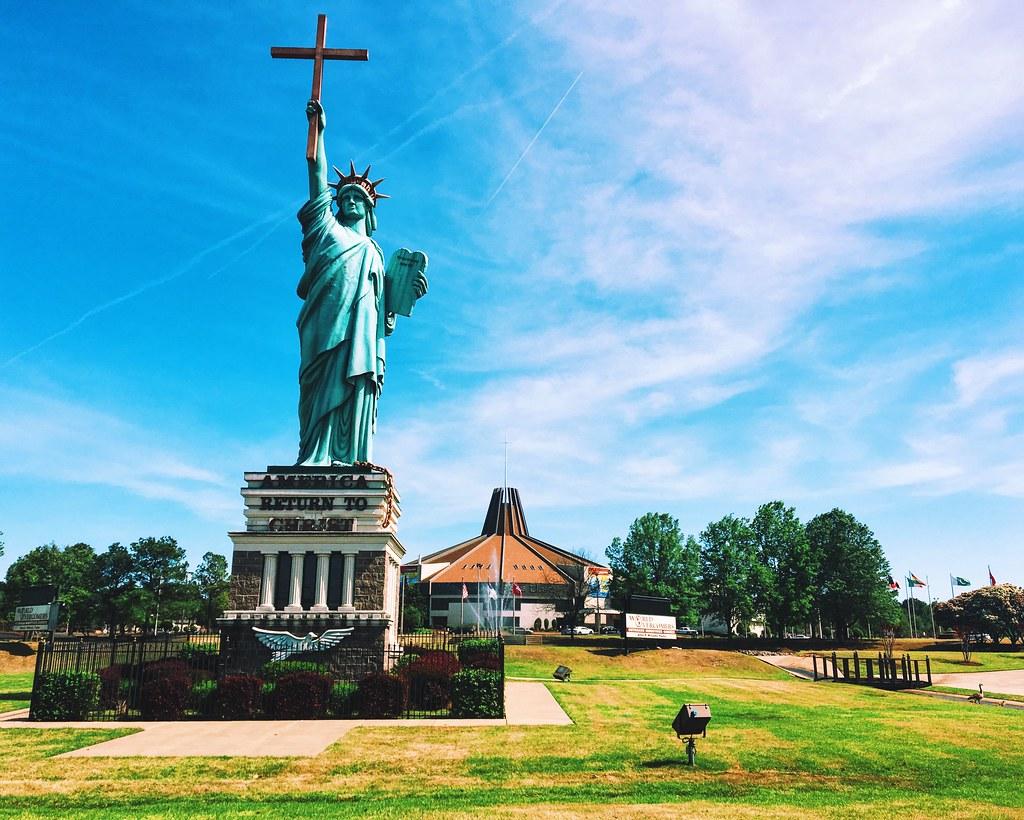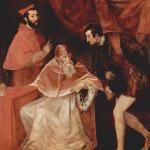by guest writer Gregory Eran Gronbacher
***********************************************
Staying In-Touch with the Ex
As a former Catholic, I like to, now and again, see what the latest issues, discussions, and controversies are within Catholic circles. I may no longer belong to the Church, but I recognize the significant social and cultural role the institution plays – so, I read select Catholic blogs (including this one) and online magazines that cover the spectrum of orthodox to liberal, traditional to reform minded.
There’s lots happening – the Amazon Synod and Pachamamas, Francis’ ongoing angering of many traditionalists and conservatives, and the lingering clergy sex abuse scandals.
But the topic that grabs my attention more than any other is the interconnected web of recent Catholic thinkers (mostly American) pondering if liberalism (as a political-social philosophy) is dead or if it’s alive, whether it should it be discarded, and so on.
These issues prominently played out in the Amir Sohrabi – David French debates, moderated by Ross Douthat of the New York Times, this past summer. Sohrabi, a Catholic convert and frequent commentator at First Things magazine, challenged the defense of liberalism by David French, an Evangelical lawyer and constitutional scholar.
There are many practical and philosophical aspects motivating these discussions. But lurking behind the grand discussions on liberalism is Drag Queen Story Hour.
Drag Queen Story Hour
Somehow, it’s become a fad to have drag queens read stories to children in public libraries. (Look, this is America, if Donald Trump can become president, anything is possible.)
Is Drag Queen Story Hour harmful? Depends who you ask. The website of the movement has an FAQ, and yes, they have an agenda. I also hear, that in the spirit of equality, they’ve expanded to include Drag Kings offering public readings of children’s books. (Who knew?)
In all honesty, I’m not fully sure what to make of Drag Queen Story Hour, although I remain somewhat uncomfortable with it, even as a gay man. With that said, my personal opinion also includes the notion that if you’re opposed to Drag Queen Story Hour, then don’t bring your kids. As to (important) questions of public funding and the use of public spaces, I haven’t yet made a deep enough dive to know the lay of the land concerning these issues.
In any event, Drag Queen Story Hour appears to be the rainbow colored straw that broke Amir Sohrabi’s back, prompting him to write several pieces in First Things and other publications, and eventually challenge Evangelical legal scholar, David French, to a debate at Catholic University.
The gist of the debate – Sohrabi asserts that Drag Queen Story Hour is a moral abomination brought to you by decadent liberalism run amok. Sohrabi, and others, want Catholics and conservatives to push back harder and find “alternatives” to today’s liberal mainstream, even if that includes defying or rolling back some of the basic principles of liberalism in favor of promoting the “true” common good and moral truth. In truth, Sohrabi is long on serious tone and consternated looks, and short on specific policy details of what his exact alternative looks like.
David French, no lover of Drag Queen Story Hour, sternly warns Sohrabi and his supporters, that to dismantle liberalism would be to seriously challenge liberty in America and threaten the religious liberty of Christians, and others.
https://www.dragqueenstoryhour.org/
Liberalism
Let’s take a step back and define some terms. Defining terms is vital for intelligent and civil conversation. Many Americans think of liberalism as the opposite of conservatism – with both terms usually remaining ambiguous and vague.
When people hear liberalism they tend to think of FDR’s New Deal or Hillary Clinton, and contrast it with the conservatism of Reagan and others. However, liberalism, properly speaking, isn’t a set of policy stances or a flavor of the Democratic Party. Liberalism is a several hundred year old political philosophy that goes beyond party, candidate, or policy stance.
By liberalism, I mean the social-political-economic-cultural movement with its roots in modern European thought – think Mill, Locke, Tocqueville, Bastiat, even Burke (yes, we can save that particular conversation for another day.)
By liberalism, I mean the social philosophy of human dignity and human rights, of individual and collective freedom, of modern democracy and universal suffrage, free speech, free press, the affirmation of the equality of all humans regardless of gender, race, ethnicity, and so on.
Liberalism – in a broad sense – is committed to open societies, liberty, and equal rights – along with the conviction that these goals require a free economy with minimal government interference.
Today, Western culture is, by and large, liberal culture. Today’s, American Republican and Democratic parties are both liberal, more or less, in this classical sense of the term. Our current use of of the terms liberal and conservative bespeaks more sub-philosophies and policy stances rather than distinct, developed political philosophies. We’re all liberals – liberalism is that in which we move and have our being.
Simply because liberalism is pervasive, doesn’t mean we should engage it unreflectively or uncritically. Liberalism promotes freedom and freedom is only as good as the character of those exercising it.
Has Liberalism led to excesses? Sure. The practice of every political philosophy does. Yet I can’t help but think that much of the anti-liberal sentiment is merely frustration at the conservative losses on every issue in the culture wars. You know, if your ideas keep failing to attract a majority, then blame the “system.”
I respect any serious effort to render a culture that affirms human dignity and provides for genuine human welfare. If we can improve on our current efforts – and we certainly can – well, then we should try. Liberalism is always a work in progress.
For the record, I support a robust defense of religious liberty. Genuine religious liberty – freedom to worship and to educate children and adults in the history, values, and teachings of one’s faith. I don’t believe anyone should be discriminated against because of their religious beliefs in terms of employment, housing, and so on. I’m even sympathetic to those who don’t want to bake cakes or provide services for same sex weddings. (Although, I find it strange, that the same folks never seem to deny services to divorced and unannuled remarried folks.)
Yet I also support a proper understanding of the separation of church and state. The U.S. has no established religion and is prohibited from doing so by the Constitution. We’re a secular, liberal democracy (Republic) with a predominantly Christian-affiliated population. And yes, Christianity played a role in shaping our founding our nation as did liberalism and other classical ideas.
But we’re not formally a Christian nation, we never were, nor should we ever be.
And I should note, that Catholicism formally opposed religious freedom for centuries, deeming it a heresy – you know, “error has no rights” and that sort of stuff. The teaching developed, or changed, or was subverted (depending on your predilections) along the way. But it took a lot of work to get from Pius IX to John Courtney Murray and Dignitatis Humanae.
Which brings me to Sohrabi and those milling about in those intellectual circles.
The question remains, if liberalism is dead or exhausted, then what should come next? If Sohrabi is so infuriated with liberalism then the onus is on him to lay out what will take Liberalism’s place.
I acknowledge it’s early in some of these conversations, so, perhaps, these folks will actually produce something substantive. Time will tell.
Catholic Integralism
However, standing on the sidelines, holding Sohrabi’s beer, is Integralism.
Catholic integralism is/was a movement that seeks to assert a Catholic underpinning to all social and political action, and to minimize or eliminate any competing ideologies, such as pluralism, secularism, and liberalism.
Catholic integralism supports subordinating the state to the moral principles of Catholicism. Thus it rejects most common notions of the separation of church and state, of free and open moral debate, and seeks to impose a Catholic authority of some sort over political affairs.
In recent years, these ideas have gained limited traction among younger generations of Catholics writing for websites such as The Josias.
And for the sake of reference, some thinkers have noted parallels between Catholic integralism and a view held by a minority in the Reformed churches, Christian reconstructionism.
Now, it seems to me that various forms of Integralism keep floating to the surface, with hints that this is the way forward post-liberalism – that Sohrabi and others, are either quasi-integralists or Integralists in waiting.
And this, I find equally horrifying and humorous.
Integralism – a Recipe for Catholic – and Cultural Disaster
As someone who understands the church, but stands outside it, I think many Catholics are unaware of the credibility gap they operate under. Yes, Pope John Paul II was very popular and was seen as a positive influence on the world stage. But he died in 2005, and it’s been downhill since then.
A third of adult, white Catholics have left the church since 1990, and the rate of loss is increasing. Further, the priest child rape scandals have deeply damaged the Church’s public credibility. As a non-Catholic friend noted when I discussed this article, “Why are they so afraid of Drag Queens? Those kids are much safer with them than with most priests.”
If you think this view isn’t common, you don’t get out enough.
Despite the mostly poor scholarship currently taking place under the banner of Integralism, my best and honest reading of the general aim of such is this – the notion that Church teaching takes precedence or has some priority over political practice and democracy. Integralism is opposed to a secular government and deep seated issues with the separation of church and state – a long standing, liberal tradition.
The horrifying part of this is that it looks an awful lot like theocracy, which usually leads to gross violations of human rights. Ask yourself, would you want most of today’s bishops and priests having some oversight over the government and legal and political process? We’re talking men who can’t even protect the children in their care and who oversaw decades of child rape while turning a blind eye. Additionally, the typical bishop tends to make any government bureaucrat look stunningly competent.
The humorous part of this is that anyone thinks it has even the slightest chance of happening. Read the Pew study lately?
Catholics are about 21% of the U.S. population. Conservative Catholics who support some form of Integralism are a fraction of that fraction. Yes, the U.S. is roughly 70% Christian, but only about 32% of that 70% is conservative or traditional.
To implement Integralism would take some form of Constitutional Convention, a massive political upheaval that resulted in dramatic legal and Constitutional changes – or a revolution.
A revolution, even a nonviolent one, against the U.S. Constitution and government would be disastrous. If conservative Christians feel persecuted now, well, the situation after an attempted revolution would be, shall we say, different?
Even efforts short of a revolution – some sort of subtler power grab, some attack on due process or democracy – would result in harsh backlash – as it rightfully should.
Christians, conservative and otherwise, have the right to speak, advocate, and lobby for their stances, ideas, and values – as do all Americans – be they believers or atheists. I fully support the right of religious American’s speaking out in public spaces, taking legal action to protect their rights and the rights of others. Yet in a democracy, and according to our Constitution, no denomination should attempt a power grab or attempt to dictate how things should go down.
The United States is not fertile soil for Catholic Integralism, even if Integralism could be shown to have any merit or virtue – which it can’t. Perhaps Integralism would work in a country where the church is strong, highly influential in the culture and has a positive social and political record of exercising power virtuously, such as … hmmm …ah … well, how about … never mind.
image credit: https://www.flickr.com/photos/12837894@N04/26722851750

















